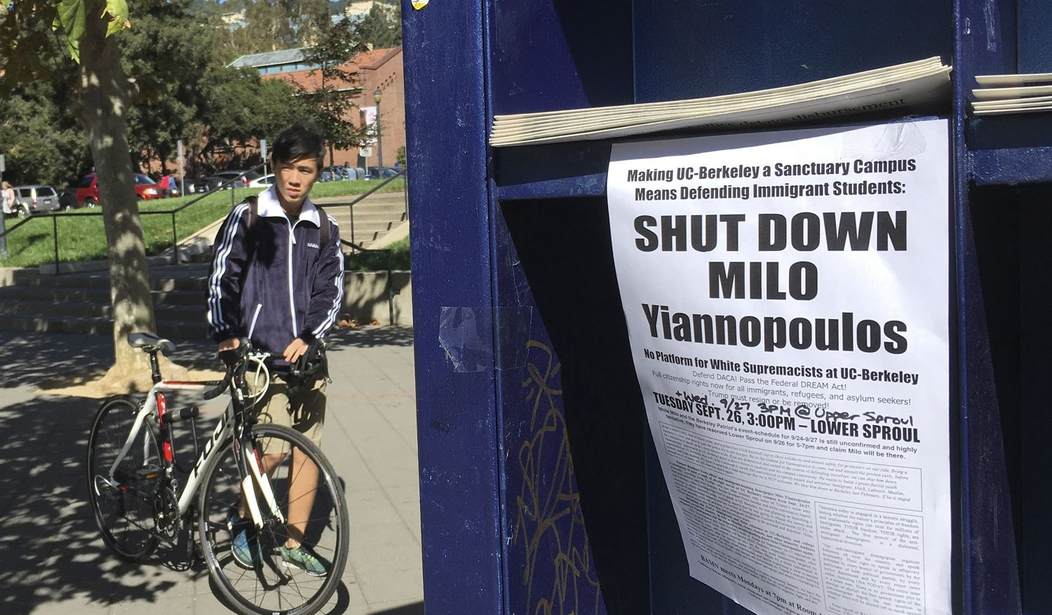Polarities are the spice in a dish of politics in search of a recipe. Sometimes the dish becomes a fallen souffle, and once a souffle falls, no hostess can serve it with pride.
The celebrated chefs of Washington's political cuisine are having to deal with fallen souffles cooked to recipes that worked once but now not so much. The midterm elections begin to close on the cooks like the pressure of the approaching first seating at a popular restaurant. Sometimes the chef just quits the kitchen in frustration. Case in point: House Speaker Paul Ryan. The rest of us are stuffed with the unrelenting breaking news that scrambles every point of view into something that looks more like a kitchen disaster than dinner.
Fast-moving news cycles provide diners with much to debate, but the facts, when available, are mixed with scattered "factoids" -- something that sounds like a fact but in fact is not a fact -- and splashed on cable news, the internet and Twitter, making it all but impossible to measure the quality of the ingredients in the news and opinion.
The president's tweets, with outrage dispensed in 280 characters, are no more helpful than the tweets of celebrities in Hollywood and academia who attract a mass following with confirmation of what they already believe is revealed truth.
Technology delivers updates with acceleration faster than the speed of thought. There are few guides to reasoned reflection. If only for nostalgia, we might usefully remember how some of the old ways worked.
Recommended
Former President Franklin D. Roosevelt's fireside chats in a time of desperate economic depression and the nightmare of war were meant for that reflection and inspiration, when everybody agreed our very way of life was threatened by evil enemies. Families gathered around the radio, and despite manifold differences of opinion, there was a reassuring feeling that "We're all in this together." Newspapers, magazines and newsreels backed up the feeling.
The president's press conferences, intended to convey information with points to persuade, were taken seriously by everyone. You didn't have to agree with the president's words, and many didn't, but everyone agreed that the president was legitimate because he was elected fair and square. The public was free to question his decisions but not his authority to make them.
During the tumult of the Vietnam War, the assassinations of then-President John F. Kennedy, Robert Kennedy and Martin Luther King Jr., and the convulsion of Watergate made the network's claim that Walter Cronkite was "the most trusted man in America" almost accurate. He ended his evening broadcasts saying, "And that's the way it is," but this was omitted if he closed with an expression of opinion or commentary. Opinion was opinion. News was news, even if sometimes seasoned with a raised eyebrow.
When a president tweets an opinion on everything, he upstages the news. Opinion from everybody, delivered in the maze of electronic devices, gives equal voice to mere attitude. The drunk at the end of the bar now has a smartphone or a laptop to shout into the ether.
My heart, but not my head, went out to David Hogg, age 17, a survivor of the high school massacre at Parkland, Florida, who was awarded media fame for his passionate, profane and sometimes contradictory rants on gun control. But he's young and inexperienced, obviously suffering emotionally, and his experience does not grant mature authority on complex issues. But we were all young and callow once. A powerful talk show host has the right to demean him for his youthful arrogance, but she is neither young nor callow and shouldn't have done it. Fox News host Laura Ingraham was right to apologize, and Hogg was wrong to scorn her apology and take advantage of newly acquired fame and over 750,000 Twitter followers to organize an advertiser boycott of her show.
Perhaps some light as well as heat can emerge from the bizarre conflict, with a fresh look at the value of free speech and how it's supposed to operate. Ingraham promises a needed continuing segment, "Defending the First," to expose the enemies of free speech. The liberal Brookings Institution took a survey and found that a majority of students think it's OK to shout down a speaker with opposing views. Bill Maher, hardly part of a right-wing media conspiracy, accuses young Hogg of bullying and scorns boycotts as "cutting off free speech."
Freedom of speech, it bears frequent repeating, was not established to defend motherhood and apple pie. The First Amendment does not guarantee measured, polite or thoughtful speech but free speech, with all its sometime abuse, bad taste and bad manners. It's a precious but often unpopular path to truth.
High-school debate classes and societies once required students to argue different sides of a question, often to take a side they abhorred so they could understand the merits and vulnerability of every argument. We could all profit from something like that. We might learn something about "Defending the First."

























Join the conversation as a VIP Member